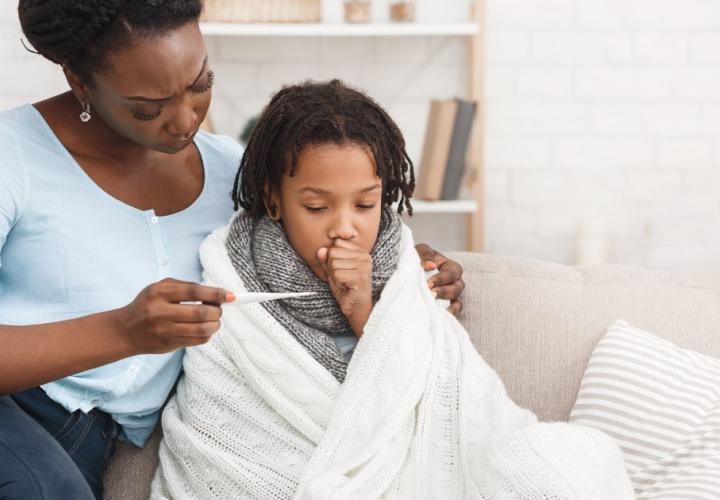3. Will a 104-degree fever cause brain damage if I don't medicate?
No, they won’t burn up and their brains won’t fry (see below) if you decide to let the fever “break” or run its course without giving medication.
I’ve seen children run around with 104-degree fevers, and children on the sleepier side with low-grade, 100-degree fevers. If a child looks or feels uncomfortable, by all means, please give them the appropriate dose of acetaminophen (Tylenol) or ibuprofen (Motrin). Your pediatrician will tell you the exact dosage for their weight and age.
4. Do high fevers cause seizures?
Febrile seizures can happen when a child’s body temperature increases quickly.
This has nothing to do with the temperature itself. These seizures can be scary to watch, but they are harmless and only last a few minutes. And, no, febrile seizures do not damage a child’s brain.
5. Does teething cause fevers?
According to the American Academy of Pediatrics, there is no scientific evidence that teething causes fevers.
If your child is popping their first set of teeth, or many at once, it’s possible to have an elevated body temperature of 100 or lower because of inflammation, but not a full-blown fever.
So, why does it seem like every time a tooth emerges, your child gets a high fever? Teething hurts the mouth, and when that happens, children suck and chew on their hands and fingers to self-soothe. Then, germs enter and those germs put a virus into your child’s body, which causes the fever.
6. How high is too high for a fever and when should you get immediate medical attention?
If your child:
- Is 3 months or younger and has a rectal temperature of 100.4 or higher, call the pediatrician right away and do not give medication unless your doctor has told you to. Fever in newborns isn’t typical, which is why you need to call the doctor.
- Is running a temperature of 102 or higher and it lasts more than two days, visit the emergency room to rule out any bacterial infections.
Post this list somewhere in your kitchen, if helpful.
>Related: When is fever an emergency?
It’s never easy to see our children sick or in discomfort. I always tell parents to look at the whole child and not just the fever. Trust your gut—you know best.

